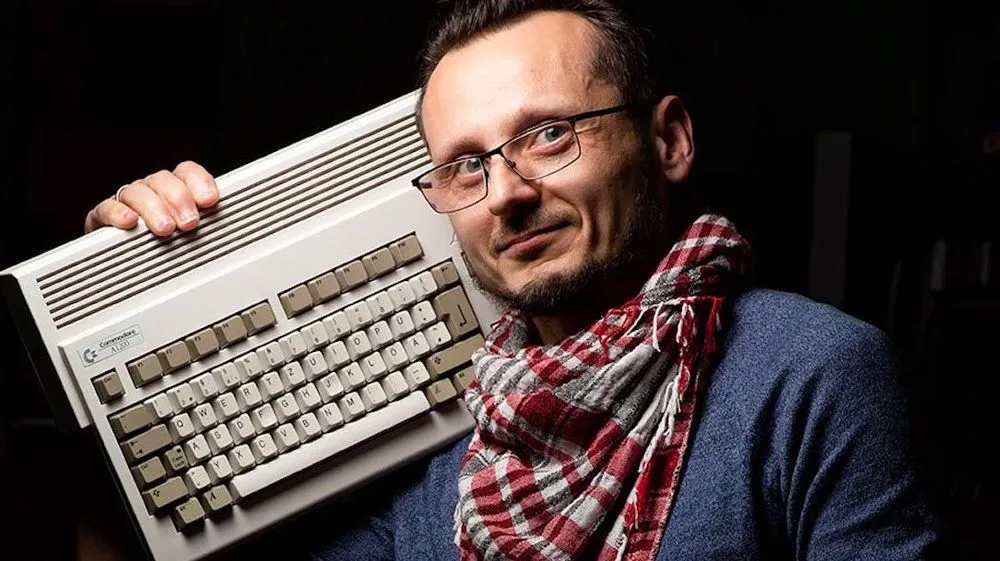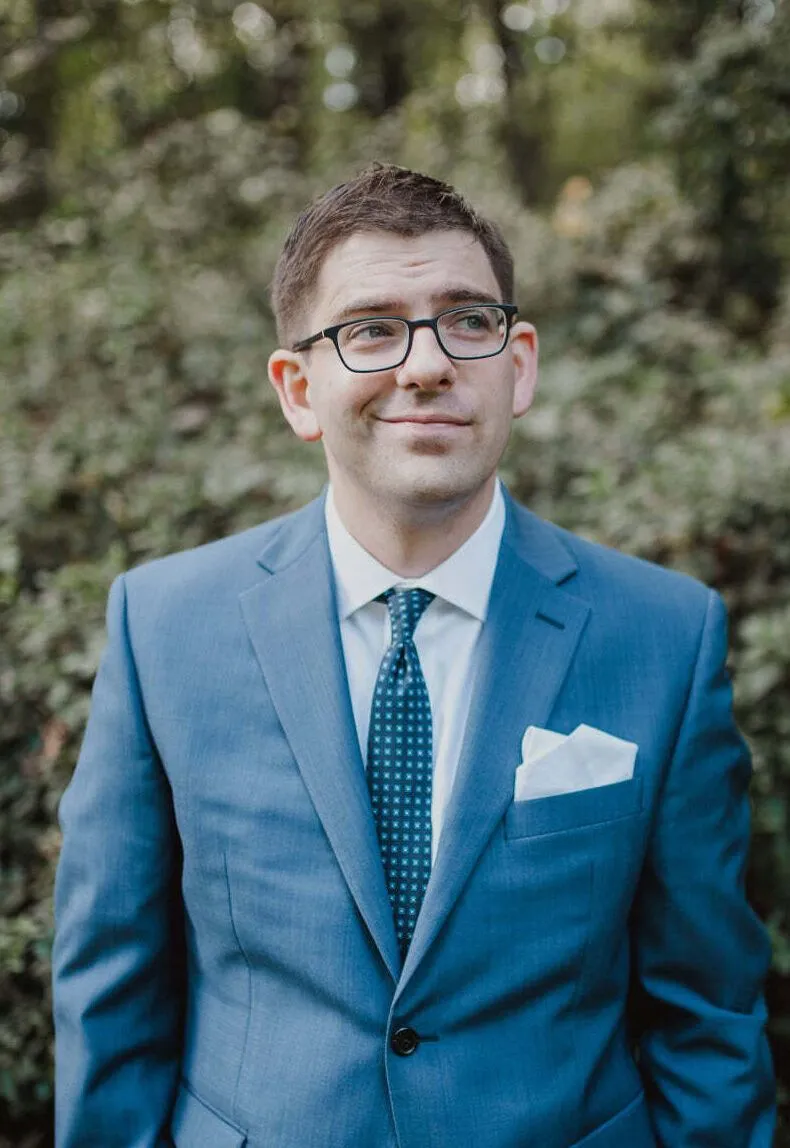Mariupol Computer Museum creator finds a new war-time calling
Dmitry Cherepanov, 45, is a self described computer geek, who goes by the nickname “Dmitry Brain.”
By day, he is a programmer who helps Ukrainian companies create websites, but his passion for the last 20 years is collecting something unusual – old retro computers.
Cherepanov said his love for computers goes back to his childhood. He has collected some 120 computers and gaming consoles.
“Computers are another world in which I cannot express myself,” he told us back in March when we first spoke. “It's like a parallel universe without borders. I have always been inspired by what computers give us.”
His large collection was housed in a museum he created nearly two decades ago in Mariupol, Ukraine, not far from where he lived with his family.
The museum had more than 500 exhibits from the 1950s to the early 2000s. Among them: ZX Spectrums, which were popular back in Soviet times because all you needed was a circuit board and a soldering iron to build it yourself.
“The last time I was in the museum was March 14,” he recalled. “I was depressed and upset that I lost everything.”
Russian shells rained down on Mariupol and Cherepanov fled with his family to western Ukraine. Cherepanov found out from a neighbor that the museum was destroyed in the fighting. All that is left is a digital footprint on his website.
We caught up with him again this week to talk about his newest project, a website called MRPL.life, which he built and created to help Mariupol residents find loved ones who have gone missing in the fighting and allows residents to post pictures and details of relatives or friends in Mariupol. More than 12,000 people have visited the site since it launched last week, Cherepanov said.
The interview below includes an update from Cherepanov along with our earlier conversation. It has been edited for length and clarity, and an excerpt is available in this episode of Click Here.
CLICK HERE: Tell us the news from Mariupol.
DMITRY CHEREPANOV: Mariupol is almost completely destroyed. According to the latest data, ninety percent of the infrastructure has been destroyed. I lost everything that was dear to me in my hometown where I lived for 45 years, complete destruction. There is nothing left of the city, nothing left of my home.
CH: Where are you now?
DC: Now we have been forced to move to the southwest of Ukraine in Kam'yanets'-Podil's'kyi and for now we are renting an apartment here.
CH: What prompted the creation of MRPL.life?
DC: I'm just trying to help people! My work is always about helping someone. So I feel better and do at least something until I have another job.
CH: Did you ever imagine you would use your programming skills to build this kind of site?
DC: I always have a lot of ideas and I create different projects, but of course, I did not think that I would create a site that would be designed to help search for missing people. This thought came to me when I myself got out of Mariupol and began to look for my relatives and friends.
CH: How does the website work?
DC: It’s an open service for people. They can add pages on the site about missing loved ones. They can also send messages to each other either privately or in comments. Sometimes they write to me with questions, and I try to direct them to those who can help.
CH: What do you hope the website will achieve?
DC: I hope that this site will help people find each other and those they are looking for. I don't know how much this site will be useful for people, but I hope that it will help at least someone other than me. It is a public and private service at the same time.
CH: Before the fighting started, you created a computer museum, can you talk about that?
DC: It's a long story! But in short, I got acquainted with computers in the late eighties, when I was eleven years old. I have a nostalgia for computers of my childhood. Since then, I realized that my whole life will be connected with them, and in 2003, I decided to start collecting. That eventually grew into a whole museum.
CH: What do you love about computers?
DC: Computers are another world in which I can express myself, create. It's like a parallel universe without borders. I have always been inspired by what computers give us.
CH: What kind of exhibits did you have on display at the museum?
DC: Oh, there were a lot of them! At least one hundred and twenty computers of various brands and models. Almost the entire model line of computers Atari, Commodore, ZX Spectrum, Amstrad. Portable computers Osborne, Kaipro, IBM, Compaq And many Soviet computers of different models. And many others. Almost all computer models of my museum are presented on my website in the exhibits section.
CH: Who would come to the museum?
DC: Children and people my age. My son was at the museum everyday.
CH: What happened to the museum?
DC: The museum, as well as my house, were destroyed as a result of heavy shelling and bombardment of the city of Mariupol by Russian troops.
CH: Can anything from the museum be saved?
DC: I don’t think so. There is nothing left of the city.
CH: Nothing left of the city, so maybe nothing left of the museum, too?
DC: Yeah.
CH: Do you plan to rebuild it?
DC: I'm creating a new museum in the future. It’s hard to plan right now. Our life starts from scratch. We need to find our new home, restore my business, and then think about a hobby, if there is time and energy for it. War is always destruction and death.
CH: You’ve updated the museum’s website. What are your plans for it?
DC: It will soon become a platform for collectors and lovers of retro computers. There will be a forum and service for the exchange or sale of exhibits between collectors. I hope it will be a kind of social network for collectors
CH: As this crisis continues, what do you want people who don’t live in Ukraine to know?
DC: It’s hard for me to say some message to the world except that war is always destruction and death.
Dina Temple-Raston
is the Host and Managing Editor of the Click Here podcast as well as a senior correspondent at Recorded Future News. She previously served on NPR’s Investigations team focusing on breaking news stories and national security, technology, and social justice and hosted and created the award-winning Audible Podcast “What Were You Thinking.”
Sean Powers
is a Senior Supervising Producer for the Click Here podcast. He came to the Recorded Future News from the Scripps Washington Bureau, where he was the lead producer of "Verified," an investigative podcast. Previously, he was in charge of podcasting at Georgia Public Broadcasting in Atlanta, where he helped launch and produced about a dozen shows.




